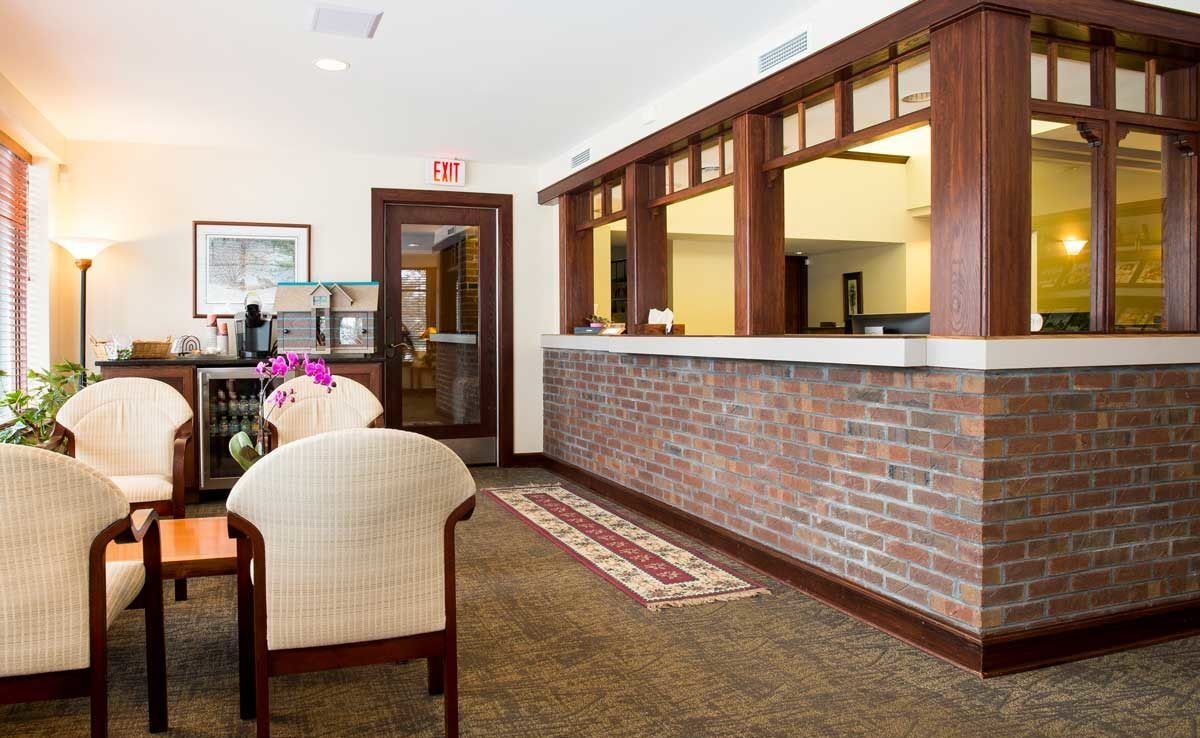
Sedation Dentistry
Do You Have Dental Anxiety?
For many patients, visiting the dentist's office can cause them to recall unhappy memories or panic. Some people have had unpleasant dental experiences while receiving previous care, or have a great fear of the unknown.
Whatever the cause of your anxiety, our Sheboygan dentists Dr. Matthew Bistan, Dr. Christopher Hill, and Dr. Christopher Tamsen can make your dentistry treatments more comfortable through sedation dentistry.
Sedation Dentistry Can Address a Variety of Needs
Dental Phobia
Many people avoid dentistry procedures because dental care makes them anxious. Sedation dentistry can calm some of these fears and help patients undergo the dental treatment they need.
Difficulty Remaining Still
Some conditions, like Parkinson's disease and cerebral palsy, make it difficult to sit still in the dental chair. Sedation dentistry can help people move less during their dental care procedure, making the process faster.
Sensitive Gag Reflex
A sensitive gag reflex can make dental exams and treatments difficult to sit through. Sedation can help patients relax and make these dental procedures more tolerable.
Undergoing Multiple or Complex Procedures
Some dentistry treatment plans can include multiple steps, such as tooth extraction, dental implant surgery, and full mouth reconstruction. Sedation dentistry allows patients to sit still for longer periods of time, allowing the dentists in our Wisconsin office to work faster and more efficiently.
We Can Put You at Ease Request a Consultation
Have you been putting off a visit to the dentist's office but need an important treatment? Do you have pain in a tooth but are afraid of dental work?
The dentists at Signature Dental can discuss available sedation options that will pair well with your dental procedure. Sedation for dental work is safe and effective when administered by trained professionals like our dentists.
To learn if sedation is right for you, request a consultation at our Sheboygan, WI, practice online or by calling:
(920) 457-2255

5-Star Reviews From Our Wisconsin Patients
Gina was the most through hygienist I’ve ever had. Personal, kind, knowledgeable, patient, and very accommodating. Dr. Hill is always wonderful. He foresees problems before they get to big problems. So thank you, Jim
View on GoogleAlways a great experience at Signature Dental. The staff is professional and courteous and the office is equipped with latest equipment. My hygienist, Kim, always greets me with a smile and does her work efficiently. Dr. Hill is great too.
View on GoogleSedation Candidates
Sedation is more commonly used for complex dental treatments such as dental implant placement, and less often for non-invasive treatments such as teeth whitening, though patients may still choose to receive sedation for minor procedures such as whitening. Patients who are considering sedation must be at least 18 years old. Certain medical conditions and allergies may disqualify you from sedation. If you are pregnant, we recommend you wait until after you give birth before using a sedative.
During your consultation at our Sheboygan, WI, office, our dentists will review your medical history in detail to make sure there is nothing that could complicate your sedation dentistry treatment.
Dental Sedation Options

Nitrous Oxide
Also known as laughing gas, nitrous oxide is the lightest form of sedation we offer at our office. Laughing gas is inhaled through a mask, and causes feelings of numbness and euphoria. You will remain conscious throughout your dentistry procedure. The effects of nitrous oxide wear off quickly once the mask is removed, allowing you to drive yourself home after your dental procedure.

Oral Sedative
Oral sedation is administered in the form of a pill, taken before the patient arrives at our dental office. This option is stronger than nitrous oxide and can be a better option for patients who have a greater level of sensitivity or dental phobia. You will remain conscious after taking the oral sedative but patients usually have less awareness, and may not remember the procedure well afterward. Many patients describe the effects of oral sedation as a daydream-like state. A ride to and from our office will have to be arranged with a friend or a loved one.

IV Sedation
Intravenous (IV) sedation medication is administered directly into the bloodstream and is the strongest form of sedation at our Sheboygan office. Patients remain conscious while under IV sedation but likely will not remember their procedure. You will need to have a ride home after your dental treatment.
Which Option is Right For Me?
Your treatment and your level of dental anxiety are two factors our dentists will consider during your consultation. During this meeting, patients should tell us about their levels of pain tolerance and anxiety. It is important to be honest about your medical history so we can select the safest option for you. Our doctors can answer any further questions you have about sedation or about your proposed dental work.
With the right knowledge in hand, we will create a plan for your treatment and schedule your procedure at our Sheboygan office.

Does Insurance Cover Sedation?
Sedation dentistry does add to the cost of your treatment, but for many patients, it is worth it for their comfort and the results.
Although insurance companies don't cover sedation, we accept credit cards to help with the cost.
More 5-Star Reviews for Our Practice
Kind and gentle dentistry. Signature dental takes care to make your dental experience is as awesome as possible. Would highly recommend this practice.
View on GoogleI went to signature dental and the staff was great and friendly and welcoming the wait times were less than 10 min and the addressed my issue i would definitely go back
View on Google
